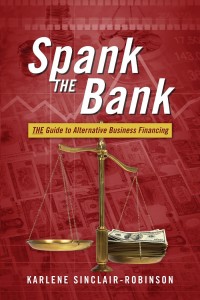ACH Advances
Merchant Cash Advance Default Rates
April 14, 2013 Here’s a question that every investor, lender, and underwriter asks at some point, “What is the default rate on a Merchant Cash Advance?” I personally don’t like when Merchant Cash Advance is overgeneralized since every funder offers their own variation of it, has a different tolerance for risk, and calculates under-performing or non-performing accounts in a unique way. Alas, I am not trying to avoid the question but want to make it clear that there is no one-size-fits-all financing model, nor a standard for defaults. I will quote publicly available information though…
Here’s a question that every investor, lender, and underwriter asks at some point, “What is the default rate on a Merchant Cash Advance?” I personally don’t like when Merchant Cash Advance is overgeneralized since every funder offers their own variation of it, has a different tolerance for risk, and calculates under-performing or non-performing accounts in a unique way. Alas, I am not trying to avoid the question but want to make it clear that there is no one-size-fits-all financing model, nor a standard for defaults. I will quote publicly available information though…
On Deck Capital
10/9/12 – States their default rate was in the low single digits, but it was double that amount during the recession. Source: Upstart Business Journal
3/27/13 – States their default rate is around 5%. Source: Forbes
Capital Access Network
10/1/12 – Default rate stated to be in low single digits by their CEO, who adds that $275 million in accounts have underperformed but not all of those have been written off. Source: Digital Transactions
2/14/13 – Claims their loss rate (at least for a selection of their portfolio) was 3.2%. Source: Gigaom
Kabbage
11/13/12 – CEO claimed their default rates were below 2%. Source: USA Today
IOU Central
9/30/12 – Public financial statements reveal that more than 8% of their loan portfolio is impaired or past due. Source: IOU Financial Inc.
Outside opinion
10/1/12 – A senior manager at First Annapolis Consulting claimed that Merchant Cash Advance default rates averaged 12 to 13% in 2009, but that they are down to around 4 or 5% today. Source: Digital Transactions
SBA Community Express loans
12/15/2008 – An SBA program that guaranteed small business loans between $5,000 and $250,000 (this range sound familiar?). Default rate was 7% and the program was shut down on April 30, 2011. Source: LA Times
Borro
6/13/2013 – Borro CEO reports their bad debt in this video to be approximately 8-10%. They offer personal asset loans and their clients are primarily small business owners.
————-
Despite these figures, I still hear from account reps to this day who claim that up to 20% of their portfolios default. These defaults don’t necessarily all happen on the first advance or loan, as they may happen after additional rounds of capital. Perhaps more interesting is that these reps claim the funders don’t so much as bat an eye at these statistics.
So what’s the default rate of a Merchant Cash Advance? Well it depends on a lot of things…
Recent Merchant Cash Advance News
April 14, 2013 In case you missed some of the big headlines in this last week, below is a summary:
In case you missed some of the big headlines in this last week, below is a summary:
Forbes changed its tune on MCA after five years
It took only a handful of journalists to set the Merchant Cash Advance industry’s momentum back YEARS. One of those journalists was Maureen Farrell, a previous writer for Forbes. Her story on January 31, 2008, titled Look Who’s Making Coin Off The Credit Crisis mercilessly labeled Merchant Cash Advance providers as blood sucking vampires borne out of the Great Recession. Sensational headlines attract attention and Farrell did her job well. But for someone whose background is Art History, English, and Journalism, she may not have been in the best position to make a qualified assessment of such a unique method of alternative finance. It’s unfortunate then that Forbes ran the story since it no doubt impacted public opinion in a negative manner for years.
That’s why it was so refreshing to see ‘Money, Money’ — How Alternative Lending Could Increase Your Company’s Revenue in 2013. Published by Cheryl Conner, she wastes no time in pointing out Farrell’s prior coverage as one of personal opinion and skepticism. Merchant Cash and Capital’s CEO, Stephen Sheinbaum was instrumental in Conner’s fresh assessment of the industry.
Read the new article on Forbes…
Deals being stretched out over 15 to 24 months may not be a step in the right direction
At least that’s the take of RapidAdvance’s CEO Jeremy Brown. In his latest post on DailyFunder Brown argued permanent capital solutions do not fit working capital needs.
Read his post…
Major executive shake-up occurs at Capital Access Network
Capital Access Network, the parent company of AdvanceMe, CapTap, and NewLogic recently let go of several top executives. Before official announcements were made, word had already leaked out and was being discussed on DailyFunder.
Read the discussion…
Merchant Cash Group announced the winner of their NCAA March Madness contest
NCAA basketball took us for a wild ride this year, but Merchant Cash Group is still awarding all their participants with bobble heads. The first place winner got cold hard cash.
His name is….
On Deck Capital embraces startup culture
Video games and ping pong tables adorn On Deck’s new office. Is the culture changing in alternative lending?
Read the story…
The ETA Expo is fast approaching. Are you going? Plan meetups
ETA expo thread on DailyFunder…
Kabbage Closed on a $75 million credit line
Read the story…
Merchant Cash Group NCAA Contest Winners Announced
April 10, 2013 If you weren’t in this year’s NCAA bracket competition hosted by Merchant Cash Group, you missed out on a lot of fun!! But that’s okay, because well there’s always next year 🙂
If you weren’t in this year’s NCAA bracket competition hosted by Merchant Cash Group, you missed out on a lot of fun!! But that’s okay, because well there’s always next year 🙂
From Heather at Merchant Cash Group:
“Merchant Cash Group had the privilege of hosting a NCAA March Madness Bracket Challenge offering a top cash prize of $500.00. We invited people from all over the financial industry to join our friendly competition where even the losers walk away with a cool prize. The Brackets were shaken up severely with the Cinderella story of Florida Gulf College and the early elimination of some of the top schools, uh hum Kansas St, New Mexico and UNLV to name a few. By April 8th we were down to only one person (Billy Crowe) who had Louisville winning it all and with that made a come behind win with a 15 point spread.
Now, while Billy is walking away with the Grand Prize all the other participants will be receiving a basketball bobble head trophy announcing to everyone that they in fact our bracket challenged. I would like to thank everyone who participated in the competition and I look forward to hosting more networking opportunities for our space. Below is the final standings and in the interest of saving ego’s please do not rag the losers to hard after all they are stuck with a bobble head.”
- Billy Crowe – PricewaterhouseCoopers Final Score: 111
- Heather Francis – Merchant Cash Group Final Score: 96
- Badger Morning – Merchant Cash Group Final Score: 80
- Sean Murray – Raharney Capital Final Score: 74
- Kara B – Merchant Cash Group Final Score: 73
- Jason Fullen – NVMS Final Score: 69
- Michael Bernier – SBS Capital Final Score: 59
- J. Mark Anderson – Business Funding USA Final Score: 50
- Scott Williams – Financial Advantage Group Final Score: 48
————————————
My chances at bracket gold were dashed when New Mexico lost in the first round to Harvard. Harvard…
Thank you Heather for the fun and also I want to let everyone know that I will be spending some time at Merchant Cash Group’s booth during the ETA expo (#751) on behalf of MPR and DailyFunder. Merchant Cash Group is a great MCA company and I am honored to participate in their exhibit.
ETA Expo 2013 is Approaching
April 9, 2013 The ETA Expo 2013 in New Orleans is fast approaching. If you haven’t registered yet, you should probably go and do that over at http://www2.electran.org/am13/. This will personally be my first time to New Orleans and I am excited to meet and speak with a lot of you. Merchant Processing Resource and DailyFunder will be running a live blog to cover the happenings both big and small each day. So if you’ve got an iPhone and you haven’t downloaded the app yet, now is a good time to go and do that so that you can follow along.
The ETA Expo 2013 in New Orleans is fast approaching. If you haven’t registered yet, you should probably go and do that over at http://www2.electran.org/am13/. This will personally be my first time to New Orleans and I am excited to meet and speak with a lot of you. Merchant Processing Resource and DailyFunder will be running a live blog to cover the happenings both big and small each day. So if you’ve got an iPhone and you haven’t downloaded the app yet, now is a good time to go and do that so that you can follow along.
David Rubin, a co-founder of DailyFunder will also be on site and we plan on having some fun giveaways.
So don’t forget plan your meet-ups, what to do, and who to see before you arrive. Talk about it on DailyFunder.
MCA Industry Continues Expansion
April 3, 2013 It’s said that one way to measure success or growth of an industry is to count how much capital is being raised. In that case, Kabbage and On Deck Capital have been on fire lately.
It’s said that one way to measure success or growth of an industry is to count how much capital is being raised. In that case, Kabbage and On Deck Capital have been on fire lately.
Early this morning, Kabbage announced they had secured a new $75 million line, after having just raised $30 million 6 months ago. The Forbes article announcement states that Kabbage has funded 60,000 deals to date and predicts to fund 100,000 deals in 2013 alone, a figure hard to comprehend considering that’s equivalent to the amount of transactions Capital Access Network has managed to do over the course of 15 years. I understand that Kabbage may do smaller, shorter term deals, but Capital Access Network has dominated MCA for a long time. Could Kabbage really do 100,000 deals this year? I’m unsure about this one.
Are traditional MCA funders missing out by letting Kabbage rule Ebay, Amazon, and Etsy unchecked? Is the Internet really that different than the brick and mortar market? Late last year, Amazon entered the financing market but for the purpose of strengthening their selling partners, so there are several reasons funders are tapping that market.
Paypal has been sitting on the sidelines and is perhaps considering jumping in the ring themselves. They are beta testing now with Ebay sellers.
Merchant Cash Advance is exploding in all directions. Did you hear that Yellowstone Capital funded $700,000 to a restaurant with the help of Strategic Funding Source? That’s a lot of money for a restaurant!
Merchant Financing by American Express
March 29, 2013I always wondered if the billion dollar conglomerates would market merchant cash advance / merchant financing differently than all of the small funders that started from the ground up many years ago.
This looks like every ad we’ve seen for MCA for the last 7 years. I guess the simplest explanation is the best one…
—
Note: American Express deleted the video we originally embedded here. They’ve replaced it with another youtube video that we’ve embedded above on 10/4/13
Beyond Merchant Cash Advance: An Interview With Karlene Sinclair-Robinson
March 24, 2013Guest: Karlene Sinclair-Robinson
 People come to me for advice on business lending quite often. I’ve spent years helping small business owners obtain financing, many of whom were turned down previously by a bank. And so the story has been told that if traditional lending doesn’t seem to be an option, there is an excellent Plan B, Merchant Cash Advance (MCA). The characteristics of an MCA have changed over the years though, by a wide margin.
People come to me for advice on business lending quite often. I’ve spent years helping small business owners obtain financing, many of whom were turned down previously by a bank. And so the story has been told that if traditional lending doesn’t seem to be an option, there is an excellent Plan B, Merchant Cash Advance (MCA). The characteristics of an MCA have changed over the years though, by a wide margin.
At one point in the past, they were discernibly different from a loan, and most often structured as a purchase of future credit or debit card sales. Factoring costs amongst funding providers were relatively uniform, and advances were estimated to completely pay off in 8 months or less. It’s different now. MCA has since been semantically broadened to include non-bank financial service programs that are structured as a loan. Factoring or interest rates costs vary widely, and terms can go out as long as 18 months.
But maybe you knew all that, and so when the follow up question becomes, “Sean, how else can I raise capital besides MCA?” I resort to throwing out buzz words such as Venture Capital financing or Peer-to-Peer lending. Oh I can tell you how these things work but certainly not with the amount of details that I could about MCA. As some folks depend on me to help them out and list all of their options, I find myself promising to send them “something” through e-mail later.
As I started drafting one e-mail, I began to wish there was a comprehensive book, one that I could simply recommend as an easy read to newly minted entrepreneurs and wise old business owners alike. It turns out that such a book exists and it’s got tons of tips that I hadn’t even thought of; It’s called Spank the Bank, by Karlene Sinclair-Robinson. I was so glad to have found it, that I went off in search of Karlene, hoping that she would be able to answer some of my questions. Luckily, she was nice enough to respond!
——————————-
Sean: Karlene, I can tell you from my experience in the MCA field that a lot of people looking to start a business hope that MCA is the answer when the bank turns them down, when in fact it is not. You list many alternative funding options in your book, so if an individual were interested in starting a restaurant or brick and mortar retail business, what 4 options would you recommend they try? Which one do you think they should try first?
Karlene: Sean, thanks for reaching out to me and spreading the word about my book, Spank The Bank. In response to your question, it reminds me of a jigsaw puzzle. Why you might ask? This is due, in part, to the type of business, industry, how much financing they need and who the new entrepreneur will be. There are variables that must be considered in order to decide on the best financing solutions. So, in order to help a restaurant startup or retail business, they should consider the following, if appropriate:
- Equipment Lease or Vendor Financing
- Franchise Financing
- Microloan or Peer-to-Peer Lending
- Private Commercial Loan
The great part about alternative financing is the ability to use more than one option at the same time to gain the financing needed.
Sean: You list Peer-to-Peer lending in your book as an alternative. I am familiar with Prosper.com, but are there any others that you know of? Do you have any tips to make such a lending campaign successful?
 Karlene: Great question. Yes, there are more Peer-to-Peer lending sites. Prosper.com is one of the two major sites I mention in the book. LendingClub.com is the other site borrowers should consider. They have funded over U.S. $1.5 billion as of this month. LendingClub.com hit the billion $$$ threshold on November 5, 2012, and so, in the space of just over 4 months have financed more than $500 million in loans. What is so unique about both sites is the maximum amount they can lend. Prosper lends up to $25,000 while Lending Club goes up to $35,000. Are they making a difference? Absolutely! By the way, this is not just a U.S. phenomenon, it is happening worldwide. Checkout Kiva.org
Karlene: Great question. Yes, there are more Peer-to-Peer lending sites. Prosper.com is one of the two major sites I mention in the book. LendingClub.com is the other site borrowers should consider. They have funded over U.S. $1.5 billion as of this month. LendingClub.com hit the billion $$$ threshold on November 5, 2012, and so, in the space of just over 4 months have financed more than $500 million in loans. What is so unique about both sites is the maximum amount they can lend. Prosper lends up to $25,000 while Lending Club goes up to $35,000. Are they making a difference? Absolutely! By the way, this is not just a U.S. phenomenon, it is happening worldwide. Checkout Kiva.org
Sean: You mentioned that a website is important to alternative financing sources. I find this very interesting and agree with you completely. I have gone so far as to suggest to my peers in lending that in 2013 and beyond, it does not make sense to approve a business that does not have a website, even if the business looks decent on paper. There is even one specialized MCA firm that I know of that actually evaluates the amount of Likes and Followers you have on social media in the application process. For a very small business that just needs to get their web presence up and running, how much do you think it would cost to do this and would they need to hire a designer or programmer?
Karlene: Thanks for agreeing with me on the website factor. I believe it should be a part of the due diligence process. In order to help those who are in need of website development, I suggest you check with you local area SCORE offices, Small Business Development Centers, Women’s Business Centers or other business affiliated sources that can give you a good reference to a web designer or use networking sources to help you find a competent one. Depending on what must be on the site, the price can range from $500 to as high as $10,000. No startup business needs to pay that much. Use a budget that is in line with what you need first; then add on what you want at a later date. Be sure to carefully read the web designer’s contract that outlines what they are going to do and the cost to you. Pay for services based on work completed. Most will require a down payment.
Sean: A tough question now. Is it feasible for an entrepreneur that literally has no capital of their own to invest in their startup to go out and raise 100% of the funds to see it through? I ask because I have heard this story a lot. “I have a great business plan but I have no funds to make it reality.” Do they need to save up their own money first to get started? Even alternative lenders like MCA firms prefer for a business owner to be personally financially invested. It makes them more confident that the owner will never give up.
Karlene: This is a great question Sean. Let us add to the question – how much are they seeking? Again, the type of business will also determine the funding possibilities. However, let me make this very clear: startups need to come to the financing table with something to back them. Whether you are using savings, family and friends, or your IRA, having some money in the transaction or added collateral appropriate to the financing option to be used, makes it more likely that the financing request will be approved.
Sean: I’ve heard all the rumors about SBA loans; That they take 6 months to get an approval, 9 months to get the funds, that the bank can change their mind at the last minute, etc. But i’ve also heard it can happen in a matter of days. What is the real story here?
Karlene: Yes, I have to agree, there are a lot of rumors or myths about the SBA. Since I do not work for the SBA nor any banks providing SBA guaranteed loans, I cannot give the facts on this question. However, I can say this: since all financing requests (traditional and non-traditional) goes through due diligence phases from pre-qualification, initial approval, committee review (if appropriate) to final approval for transfer of funds, depending on all parties involved, it can be fast or it can be slow. When borrowers are unwilling to provide financial records or don’t have the required collateral to make a transaction work, this can delay or stop the deal. I often tell borrowers, lenders are in the business of lending, the more qualified transactions they can approve; they will do so. If the borrower is not on par with their financial records, this can also slow down the process.
Sean: Great answer. I agree that part of how long an application process takes is on the shoulders of the applicant. The more prepared they are, the faster it should be. Any final words?
Karlene: Sean, I appreciate the invite to shed more light on this topic of alternative business financing. You offer a product that many non-banking customers can use. Finally, I’d like your audience to take from this conversation, if nothing else, the fact that they do have options available to help them. So when banks say ‘no’, they’ll know where to go.
Sean: Thanks so much for taking the time to speak with me personally and for answering several questions that tons of small business owners and even peers in my field find themselves asking at some point. You are doing so many good things out there to help people and your book is excellent.
——————————-
After our interview, I also got to sit in on a twitter talk show in which Karlene was a special guest. The show was #SmallBizChat, a weekly event at 8pm EST. You can read the extended interview between the host and Karlene at http://succeedasyourownboss.com/03/2013/where-to-go-when-the-bank-says-no-finding-alternative-funding-for-your-small-business/. I intend to join as many future events as possible. So if you stop by, please say hello. I am @financeguy74.
Bio
 Karlene Sinclair-Robinson, dubbed “The Queen of Business Financing” is the Bestselling Author of ‘SPANK THE BANK: The Guide to Alternative Business Financing’. She is considered a foremost expert on ‘Alternative Business Financing’ for startups, small businesses and struggling entrepreneurs. She is a speaker, instructor, business consultant and principal of KSR Solutions, LLC, based in Northern Virginia. She is also a top Twitter Business Financing source to follow via @KarleneSinRob. Website: http://www.SpankTheBankNow.com.
Karlene Sinclair-Robinson, dubbed “The Queen of Business Financing” is the Bestselling Author of ‘SPANK THE BANK: The Guide to Alternative Business Financing’. She is considered a foremost expert on ‘Alternative Business Financing’ for startups, small businesses and struggling entrepreneurs. She is a speaker, instructor, business consultant and principal of KSR Solutions, LLC, based in Northern Virginia. She is also a top Twitter Business Financing source to follow via @KarleneSinRob. Website: http://www.SpankTheBankNow.com.
Your Web Presence Matters to Alternative Lenders
March 20, 2013 A bunch of my risqué comments about what’s right and what’s wrong in alternative lending just got some support. Phew. I happened to be reading the news, you know about Merchant Cash Advance… and I found a delightful article on CNBC today titled, Starved for Cash, Main Street Turns to Alternative Lenders
A bunch of my risqué comments about what’s right and what’s wrong in alternative lending just got some support. Phew. I happened to be reading the news, you know about Merchant Cash Advance… and I found a delightful article on CNBC today titled, Starved for Cash, Main Street Turns to Alternative Lenders
First, I will merely point out some of my corroborated statements between what I said in The Inefficient Merchant Lending Market Theory on March 5th and the story on CNBC.
Me: How is a business REALLY doing? Reviews will tell you a lot so long as there are enough of them, and not just the star meter, but the actual written reviews. | A business’s whole reputation can’t be assessed from paperwork and credit scores, but it can be by hearing from people in the local community. I would go so far as to say that any business that does not have at least a website, business fan page on Facebook, twitter account, or a reasonable substitute should be automatically declined for financing.
————-
On CNBC: The new crop of lenders are also using nontraditional measures to assess applicants. Those measures can include payroll, Better Business Bureau ratings, Yelp ratings and more.But more recently, public databases and even social-media activity have been factored into the decision-making process.
“Every restaurant we do, we look at their Yelp review,” said Joseph Looney, chief operating officer and general counsel for cash-advance company Rapid Advance, which consults with data scientists to refine its methods and discover new insights into a business’ prospects.
Rapid Advance considers the mere presence of an active social-media footprint to be a good sign of an active business.
The technology platform of lender IOU Central pulls in data such as personal business credit information, business cash flow, social media rankings, and other information from various databases. It can even consider such factors as restaurants’ health score.
IOU Central’s system taps sources that include payroll data, insurance information, accounting records, and social-media data.
Me: Relying on weak indicators forces lenders to charge higher rates since they must compensate for the risk of unknowns. It also decreases the length of time that lenders can trust their borrowers to hold their money for.
————-
CNBC: Most alternative lenders offer shorter-term, higher-cost loans.Many rely most heavily on an applicants’ submitted bank statements or other financial data.
Merchant cash-advance companies have been around for years, Breslow said, but they typically made up for sloppier underwriting by charging high rates.
Side Notes
Not so sure about this one. From the CNBC article: “The alternative-lending industry average for a six-month loan was 38 percent when On Deck started in 2007. Now, it’s 15 percent, and Breslow said it may come down further as this underwriting continues to improve.” I don’t believe this figure to be accurate. In 2007, commissions to sales agents were embedded into the cost of a deal. Meaning, if a small business signed for a 1.38 factor rate, the sales office would get up to .10 of it, reducing the funder’s return to 1.28. Additional closing fees could be added on top of it, but were not necessary. With a 15% deal, funders like On Deck Capital expect sales agents to upsell on their own to earn their commission. So 1.15 may be the base rate, but since there are no margins built in for the sales agents to earn a commission, the cost can be upsold to 1.25 or some other figure. It’s true that the cost has come down but it’s not practical to compare 38% to 15% since the latter number is not net of fees. I’m pointing this out to inform merchants about what to expect, but also so people don’t get the wrong idea about how much the price has changed over the years.
Wow: “We have 40 engineers working on this system,” he said. IOU Central’s system taps sources that include payroll data, insurance information, accounting records, and social-media data.” 40 engineers? That’s kind of intense…
Read a story today that pretty much claims FICO is irrelevant in 2013: http://gigaom.com/2013/03/20/forget-fico-how-data-is-changing-the-rules-of-credit-and-underwriting/





























